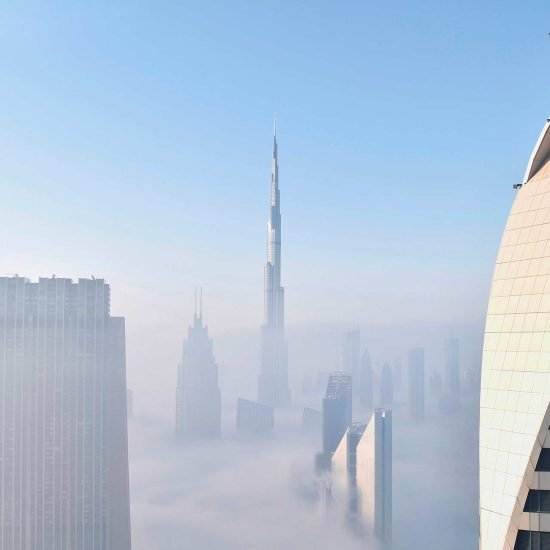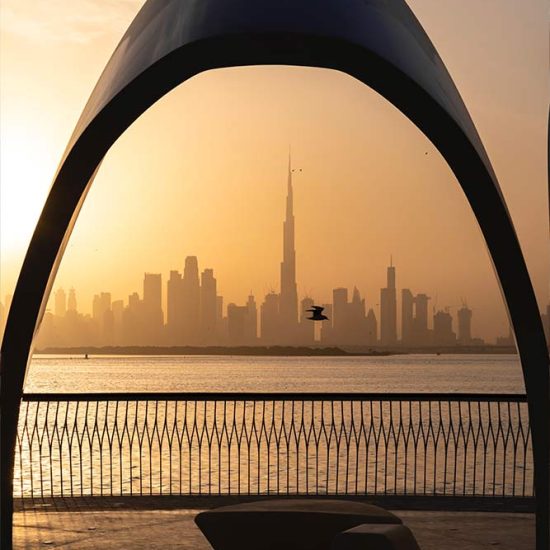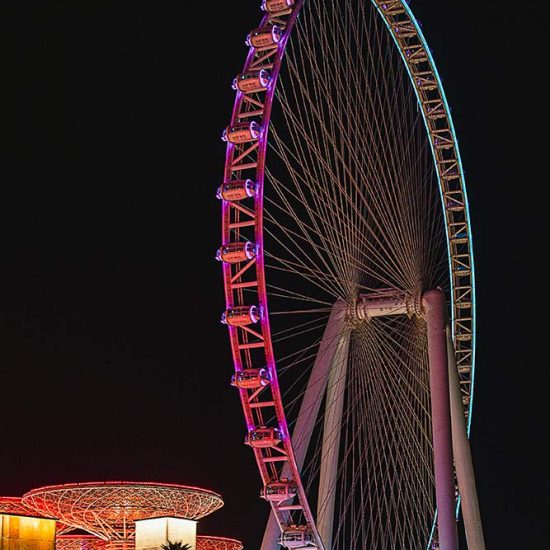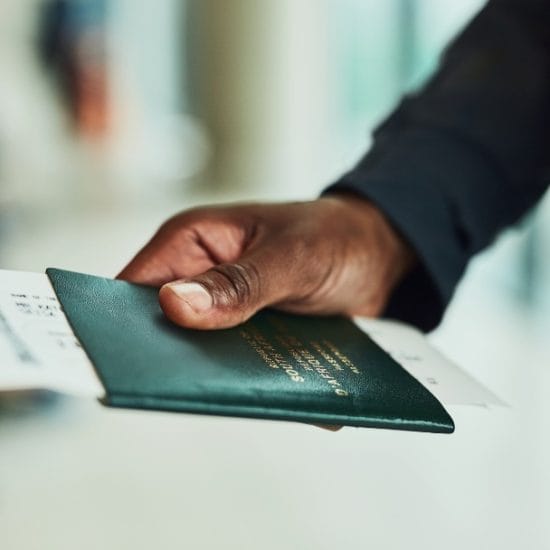Whether you’re visiting for a short holiday, planning a work stint, or considering a longer stay, understanding the different visa types, rules, and application steps for Dubai can make all the difference. This guide will walk you through everything you need to know.
Table Of Content
- Dubai visa types
- 1. Tourist Visas
- 2. Visit Visas
- 3. Transit Visas
- 4. Residence Visas
- 5. Long-Term Residency Visas
- 6. Special Visas
- General Requirements for a Dubai Visa
- Dubai visa application process
- Determine the Type of Visa Needed
- Gather Required Documents
- Choose the Application Method
- Complete the Visa Application Form
- Submit the Application
- Pay the Visa Fee
- Wait for Processing
- Track Your Application
- Receive Visa Approval
- Dubai visa exceptions and conditions for certain nationalities
- 1. Visa-Free Entry
- 2. Visa on Arrival
- 3. GCC Citizens
- 4. Special Agreements
- Key tips for a successful Dubai visa process
- FAQ
- Which type of visa should I apply for?
- How much does a Dubai visa generally cost?
- Can I enter Dubai without a visa?
- Is it possible to stay in Dubai without a visa?
- How many visa renewals are allowed in Dubai?
Dubai visa types
Dubai offers a variety of visa options designed to different travel purposes, ensuring that visitors have the flexibility they need. Understanding these visa types is essential for choosing the right one for your stay. Below, we break down the main visa categories:
1. Tourist Visas
Tourist visas are ideal for those looking to explore Dubai for leisure or short-term visits. These visas typically come in multiple formats, such as:
- 30-Day Tourist Visa: Perfect for vacationers, this visa allows a stay of up to 30 days and can often be extended for an additional fee.
- 90-Day Tourist Visa: For those who wish to stay longer and enjoy a more comprehensive experience, this option offers up to three months in the city.
2. Visit Visas
Visit visas are more suitable for those with family or friends in Dubai, or for business-related visits that might extend beyond the usual tourist timeframe. These visas are commonly sponsored by a UAE resident or an employer and can be issued for:
- Single-entry Visit Visa: Typically allows for a stay of up to 90 days and is often chosen for family visits or extended business trips.
- Multiple-entry Visit Visa: Ideal for those who need to enter and exit the UAE multiple times within a set period. This is a great option for frequent travelers or businesspeople with ongoing commitments.
3. Transit Visas
Transit visas are perfect for travelers who have a stopover in Dubai and wish to explore the city briefly. These visas are available in two durations:
- 48-Hour Transit Visa: Issued free of charge, this visa allows travelers to enjoy a short layover experience, making it ideal for sightseeing or business meetings.
- 96-Hour Transit Visa: Available for a small fee, this option extends the stay to four days, giving transit passengers more time to experience Dubai’s highlights.
4. Residence Visas
Residence visas suit to those planning to stay in Dubai for an extended period, whether for work, study, or lifestyle reasons. These visas come with specific requirements and benefits designed to different circumstances:
- Employment Visa: Sponsored by an employer, this visa allows individuals to work and reside in Dubai. It often comes with health insurance and other employee benefits.
- Investor/Partner Visa: For entrepreneurs and business investors looking to establish or partner with a company in Dubai, this visa grants residency based on the investment made.
- Student Visa: Issued to students enrolled in higher education institutions in Dubai. This visa may be valid for the duration of the study program and can sometimes include part-time work permits.
- Retirement Visa: Designed for retirees over 55 years who meet specific financial criteria. It offers a renewable 5-year residency option for those looking to enjoy their retirement in Dubai’s warm climate and luxurious surroundings.
- Remote Work Visa: A relatively new addition, this visa allows professionals to live in Dubai while working for an employer outside the UAE. It’s a perfect option for digital nomads and remote workers seeking a vibrant city to call home temporarily.
- Freelance Visa: Designed for freelancers and self-employed individuals, this visa offers flexibility and independence, enabling holders to work on multiple projects or clients across various sectors.
- Family Visa: Residents can sponsor their immediate family members, such as spouses and children, for long-term stays. The eligibility depends on the resident’s income and accommodation.
5. Long-Term Residency Visas
Dubai’s long-term residency visas are perfect for those looking to establish deeper roots in the city. These visas are designed to attract talented professionals, investors, and innovators.
- Golden Visa (5 or 10 years): This prestigious visa is awarded to individuals meeting specific criteria such as significant investments, entrepreneurship, exceptional talent, or specialized professionals in fields like science, healthcare, and engineering. It provides a 5- or 10-year renewable residency with benefits like business ownership and family sponsorship.
- Cultural and Creative Industries Visa: Geared toward creative professionals in fields such as art, culture, literature, and heritage, this visa supports the cultural growth of Dubai and grants extended residency.
6. Special Visas
Dubai also offers specialized visas that suit unique needs, helping individuals experience the city in distinct ways:
- Mission Visa: Ideal for short-term projects, this employment visa allows workers to reside in Dubai for a specific, temporary period while on contract.
- Patient and Medical Companion Visa: Designed for those coming to Dubai for medical treatment, this visa also extends to companions of the patient. It allows individuals to stay in Dubai for the duration of their treatment at approved medical facilities.
- Real Estate Investor Visa: For those who invest in property with a minimum set value, this visa provides residency as long as the investment criteria are met.
- Humanitarian and Volunteer Visa: Issued to individuals participating in community service and humanitarian work, allowing them to contribute positively to the local society while staying in Dubai.
General Requirements for a Dubai Visa
Applying for a Dubai visa involves meeting specific requirements, which vary depending on the type of visa. Here, we cover the general criteria that applicants should be aware of:
- Valid Passport: Your passport must be valid for at least six months from your planned date of entry into Dubai. Make sure that the passport has a minimum of two blank pages for visa stamps.
- Completed Visa Application Form: The application form must be filled out accurately, either online or through an authorized agent. Ensure all personal details match your passport information to avoid delays or rejections.
- Recent Passport-Size Photographs: High-quality, colored photos with a white background are required. The photos should be recent (taken within the last six months) and follow official dimensions, typically 2×2 inches.
- Proof of Travel Itinerary: A copy of your flight booking showing entry and exit dates. This ensures that the visa duration matches your intended stay.
- Accommodation Details: Applicants need to provide proof of where they will be staying during their time in Dubai. This could be a hotel reservation or an invitation letter from a friend or family member hosting your stay.
- Financial Proof: Most visa types require applicants to submit their bank statements from the past three to six months to prove financial stability. For some visas, especially residence or investor visas, proof of income or investments may be necessary to demonstrate that you can support yourself during your stay.
- Visa Fee Payment: The fee varies based on the visa type and processing time. This fee is generally non-refundable, even if your application is rejected.
- Travel Insurance: While not mandatory for all visa types, travel insurance is highly recommended, particularly for tourist and visit visas. Some visa types, such as medical treatment visas, may require complete medical insurance coverage.
- Sponsorship Documents (if applicable):
- Tourist Visas: Can be sponsored by hotels, travel agencies, or airlines operating in the UAE.
- Visit Visas: Require sponsorship by a UAE resident, who must provide documents such as a copy of their Emirates ID, passport, and a signed invitation letter.
- Employment Visas: Sponsored by the employer, who must provide an offer letter and other employment details.
- Proof of Relationship: If you are applying for a family visa, documents proving your relationship to the sponsor are essential.
- Educational Certificates (for work or student visas): These may need to be attested by relevant authorities, including the Ministry of Foreign Affairs, to verify their authenticity.
Dubai visa application process

Applying for a Dubai visa involves a step-by-step approach. Here’s a detailed breakdown of the typical process:
Determine the Type of Visa Needed
- Identify the type of visa that suits your travel purpose (e.g., tourist, visit, employment, or residence).
- Check the specific requirements for that visa type to ensure eligibility.
Gather Required Documents
Collect all necessary documents outlined in the application requirements. Make sure each document is up-to-date, clearly scanned (if applying online), and correctly formatted.
Choose the Application Method
- Online Application: Most tourists and short-term visitors can apply online through platforms such as the official UAE government portal or trusted third-party visa service providers.
- In-Person Application: For more complex visa types (e.g., employment or long-term residence), applications are often handled through authorized centers or via your sponsor/employer.
Complete the Visa Application Form
Fill out the visa application form accurately, ensuring all details match the information in your passport. Double-check for errors or missing fields that could cause delays.
Submit the Application
- For online applications, upload all documents and submit them through the designated portal.
- For in-person applications, submit the documents at an authorized center or provide them to your sponsor/employer for submission.
Pay the Visa Fee
Complete the payment process through secure online portals or directly at the visa application center. Keep a receipt or payment confirmation for your records.
Wait for Processing
Processing times vary depending on the type of visa:
- Tourist visas typically take 2-5 working days.
- Employment or residence visas might take several weeks, especially if additional documentation or verification is needed.
Track Your Application
Use the application number provided during submission to check the status online. This feature allows applicants to stay updated on any processing stages or potential issues.
Receive Visa Approval
Once approved, you will receive your visa via email (for online applications) or can collect it from the center (for in-person applications). Print a copy of the visa if needed, as some airlines and authorities may request a physical copy upon arrival.
Dubai visa exceptions and conditions for certain nationalities
Depending on your nationality, you may benefit from visa exemptions or specific conditions that simplify your entry into the UAE. Here’s an overview of these exceptions and conditions:
1. Visa-Free Entry
Citizens from several countries can enter Dubai without obtaining a visa in advance. Upon arrival, they receive a visa-free entry stamp. The duration of stay varies:
- 30-Day Visa-Free Entry: Nationals from countries such as Australia, Canada, and the United States are granted a 30-day stay, with the possibility of extension.
- 90-Day Visa-Free Entry: Citizens from countries including France, Germany, and Italy can stay for up to 90 days within a 180-day period.
2. Visa on Arrival
Indian passport holders with a valid US visa, Green Card, UK Resident Permit, or EU residence permit can obtain a 14-day visa on arrival, extendable for an additional 14 days.
3. GCC Citizens
Citizens of Gulf Cooperation Council (GCC) countries—Bahrain, Kuwait, Oman, Qatar, and Saudi Arabia—do not require a visa to enter Dubai. They can use their national ID cards or passports for entry.
4. Special Agreements
Dubai has special visa agreements with certain countries. Indeed, Residents of Schengen Area countries may have specific visa arrangements, facilitating easier travel to Dubai. It’s advisable to check the latest agreements before planning your trip.
Key tips for a successful Dubai visa process

Here’s how to make your visa experience as smooth as possible:
- Double-Check Document Accuracy: Ensure all personal information on your documents matches exactly (e.g., name spelling, passport number). Inaccurate details can lead to delays or rejection.
- Apply Well in Advance: To avoid last-minute complications, submit your visa application at least 2-4 weeks before your planned travel date. This timeframe allows room for unexpected delays in processing or additional documentation requests.
- Use Trusted Application Channels: Apply through reliable sources, such as the official UAE government portal or authorized travel agencies. Avoid unofficial third-party services that might not guarantee secure processing.
- Provide Clear and Complete Documentation: Make sure all uploaded or submitted documents are clear, legible, and complete. Poor-quality scans or missing information are common reasons for application delays.
- Stay Updated on Visa Rules: Visa policies and requirements can change, so it’s essential to stay informed by checking official UAE government websites or consulting your local UAE embassy.
- Have Travel Insurance: Although not mandatory for all visa types, travel insurance is strongly recommended. It provides coverage for medical emergencies and unexpected incidents.
- Respect the Visa Duration: Do not overstay your visa, as this can result in fines, penalties, or future entry bans.
FAQ
Which type of visa should I apply for?
The appropriate visa depends on the purpose and duration of your visit to Dubai. For short-term leisure trips, a Tourist Visa is suitable, offering stays of 30 or 90 days. If you’re visiting family or friends, a Visit Visa may be more appropriate. For employment, a Work Visa is required, sponsored by your employer. Students should apply for a Student Visa, while investors can opt for an Investor Visa. Assess your specific needs to determine the most suitable visa type.
How much does a Dubai visa generally cost?
Visa fees vary based on type and duration:
Tourist Visas: 30-day single-entry: AED 200
60-day single-entry: AED 300
90-day single-entry: AED 400
Multiple-entry options are available at higher fees.
Visit Visas: Fees depend on sponsorship and duration; consult the General Directorate of Residency and Foreigners Affairs (GDRFA) for specifics.
Transit Visas: 48-hour visa: Free
96-hour visa: AED 50
Residence Visas: Costs range from AED 1,000 to AED 3,000, depending on the visa type and duration.
Additional fees may apply for medical tests, Emirates ID issuance, and other administrative services.
Can I enter Dubai without a visa?
Citizens from certain countries can enter Dubai without a pre-arranged visa. For example, nationals from the United States, Canada, and many European countries receive a visa on arrival, allowing stays of up to 30 or 90 days, depending on nationality. However, travelers from other countries must obtain a visa prior to arrival. Always verify the latest visa requirements based on your nationality before planning your trip.
Is it possible to stay in Dubai without a visa?
No, all foreign nationals require a valid visa to stay in Dubai. Overstaying your visa can result in fines and legal consequences. It’s essential to ensure your visa is valid for the entire duration of your stay and to apply for extensions if necessary.
How many visa renewals are allowed in Dubai?
The number of visa renewals permitted varies by visa type. Tourist visas can often be extended twice, allowing for a total stay of up to 90 days. However, not all visas are renewable, and some may have specific conditions or limits on extensions. It’s crucial to check the specific terms of your visa and consult with the relevant authorities or your sponsor to understand renewal possibilities.













No Comment! Be the first one.